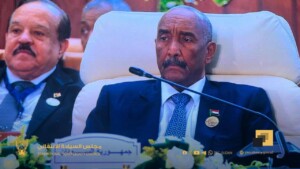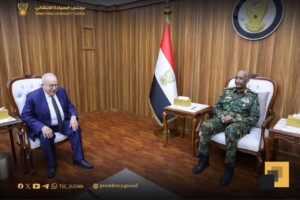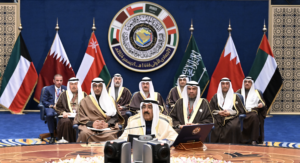Sudan Revolutionary Front discuss peace agreement implementation
Dr El Hadi Idris, head of the Sudan Revolutionary Front (SRF) and member of the Transitional Sovereignty Council, chaired the meeting of the Presidential Council of the SRF on Wednesday with the heads of organisations and chief negotiators for the Juba Peace Agreement.
 El Hadi Idris (Social media)
El Hadi Idris (Social media)
Dr El Hadi Idris, head of the Sudan Revolutionary Front (SRF) and member of the Transitional Sovereignty Council (TSC), chaired the meeting of the SRF Presidential Council on Wednesday with the heads of organisations and chief negotiators for the Juba Peace Agreement.
Mohamed Zakaria Faraj, the rapporteur of the leadership council of the SRF, signed a statement that the meeting emphasised the necessity of implementing the eastern track of the peace agreement. Implementation of the agreement includes naming candidates for the track for the executive body of the Ministry of Education and the Transitional Partners Council (TPC), and to establish a conference in Eastern Sudan.
Participants in meeting also stressed the need to encourage the admission of university students from regions affected by war, namely “the East, Darfur, and the Two Areas”. The statement announced the formation of a higher committee to follow up on the stipulation that students should be exempt from university fees.
A committee has also been formed to communicate with the relevant authorities on "a protocol for participation in the civil service."
On the Legislative Council, participants of the meeting have reportedly urged the committee concerned to pursue the issue with the Forces of Freedom and Change. Its formation “must see the light as soon as possible”, said the statement, confirming that lists of revolutionary candidates for the Legislative Council have been completed.
At a press conference in Khartoum on Tuesday following a 45-day visit to the states of Darfur, Idris said that the state’s failure to fulfil its obligations towards forces of the armed movements in the region "could lead to problems in control, which could lead to security risks". Idris praised "the discipline of the armed movements’ forces," and stressed that justice is one of the most important demands of the citizens and displaced people of Darfur.











 and then
and then